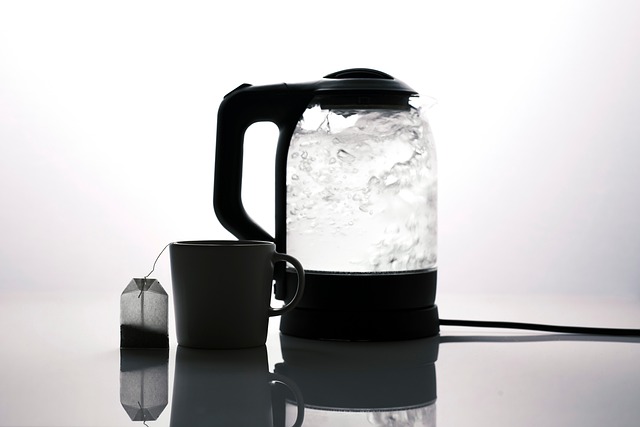Water heaters are essential for modern comfort but can develop issues like reduced hot water flow, strange noises, leaking, temperature fluctuations, rust, and sediment buildup. If your heater is over 10 years old or shows these signs, act swiftly to prevent inefficiencies, higher bills, leaks, and overheating hazards. Key indicators of replacement need include reduced efficiency, long wait times for hot water, inconsistent heating, unusual noises, fluctuations, and strange odors. Sudden drops and rapid heating are clear signs your heater may be reaching the end of its lifespan, leading to unpredictable temperature changes and longer heating times. Regular monitoring and prompt action ensure reliable hot water and prevent severe damage.
Is your water heater on its last legs? Recognizing the subtle signs it’s about to fail is crucial for avoiding unexpected disruptions in your daily routine. From age-related performance issues and temperature fluctuations to unusual noises, smells, or even sudden loss of hot water, these red flags could indicate an imminent breakdown. Understanding these common water heater problems and taking prompt action—whether through repair or replacement—is essential for maintaining a comfortable and hassle-free lifestyle. In this article, we’ll guide you through the process, offering insights into identifying issues, available solutions, and preventative measures to ensure a reliable hot water supply.
- Identifying Common Water Heater Issues
- – Aging and its impact on performance
- – Frequent temperature fluctuations
Identifying Common Water Heater Issues

Water heaters are an essential part of modern comfort, and recognizing the signs of trouble early can save you from unexpected cold showers. Some common water heater issues include reduced hot water flow, strange noises coming from the tank, and persistent leaking. If your water heater is old—usually over 10 years—it’s more prone to these problems. Other indicators that it’s time for a replacement include frequent temperature fluctuations, rust or corrosion on the tank, and an excessive build-up of sediment at the bottom. These issues can lead to inefficiencies, increased energy bills, and potential safety hazards due to leaks or overheating.
When faced with such signs, it’s crucial to act swiftly. Pay attention to any unusual behavior from your water heater. If you notice any of these symptoms, consider that it might be time to invest in a new one. Prompt action can prevent more severe problems and ensure you stay comfortable at home.
– Aging and its impact on performance

Water heaters, like many appliances, have an average lifespan, and as they age, their performance can decline. One of the primary signs that your water heater may be reaching the end is reduced efficiency. If you’ve noticed longer wait times for hot water or inconsistent heating, it could indicate that the heater element is failing or that sediment buildup has reduced its effectiveness. Over time, mineral deposits and corrosion can accumulate inside the tank, leading to lower water heating capacity and potential leaks.
Aging water heaters may also exhibit unusual noises, such as banging or rumbling sounds, which could suggest internal damage or loose components. Additionally, if you’ve experienced frequent temperature fluctuations in your hot water supply or noticed strange odors, these could be further indicators that your water heater is on its last legs. Paying attention to these signs is crucial when considering whether it’s time for a new water heater, ensuring you don’t get caught off guard by an unexpected breakdown.
– Frequent temperature fluctuations

If your water heater is on its last legs, one of the most noticeable signs is frequent temperature fluctuations in your hot water supply. You might experience sudden, sharp drops in temperature followed by rapid heating, or a more gradual but unpredictable change. This inconsistency can occur due to an aging or failing heating element, which struggles to maintain a steady temperature. As a result, you’ll notice that your showers become increasingly cold mid-way through, or that the hot water takes much longer to heat up than it used to.
These temperature swings aren’t just inconvenient; they can also be a red flag for more serious issues. Over time, these fluctuations can lead to increased energy bills as your water heater constantly tries to catch up with demand. What’s more, sudden bursts of hot water followed by quick cooling can cause stress on the entire system, potentially leading to leaks or other damaging complications. If you’re experiencing these signs, it’s a clear indication that it’s time to consider getting a new water heater—one that can provide consistent, reliable hot water for your home.
If your water heater is showing signs of distress, such as frequent temperature variations or age-related performance issues, it might be time to consider replacing it. Identifying these signs early can help you avoid unexpected breakdowns and ensure a continuous hot water supply. Remember, maintaining your water heater and staying vigilant with regular checks are key to extending its lifespan and preventing inconvenient surprises. When in doubt, consult a professional for expert advice on choosing the right replacement model tailored to your needs.
